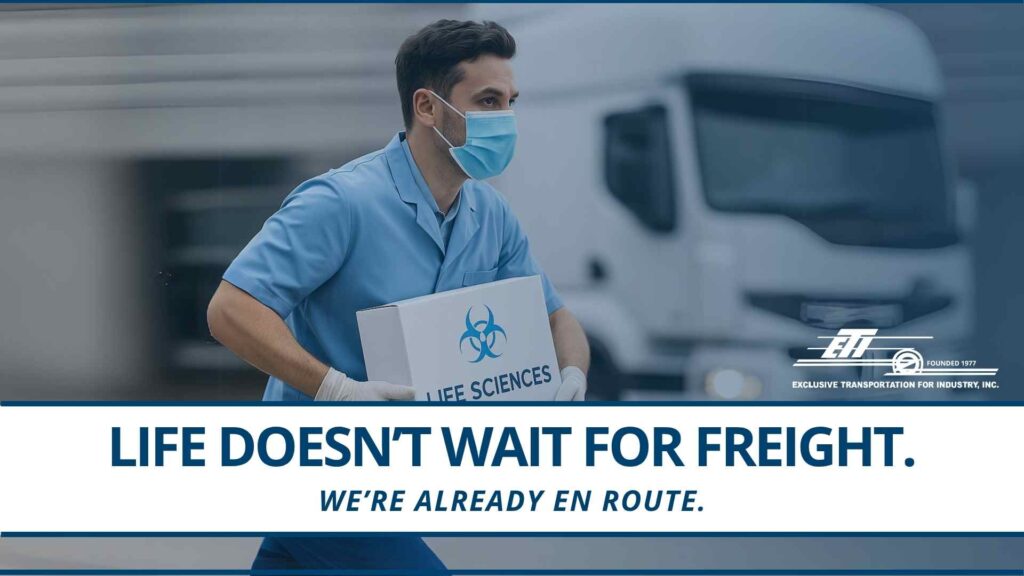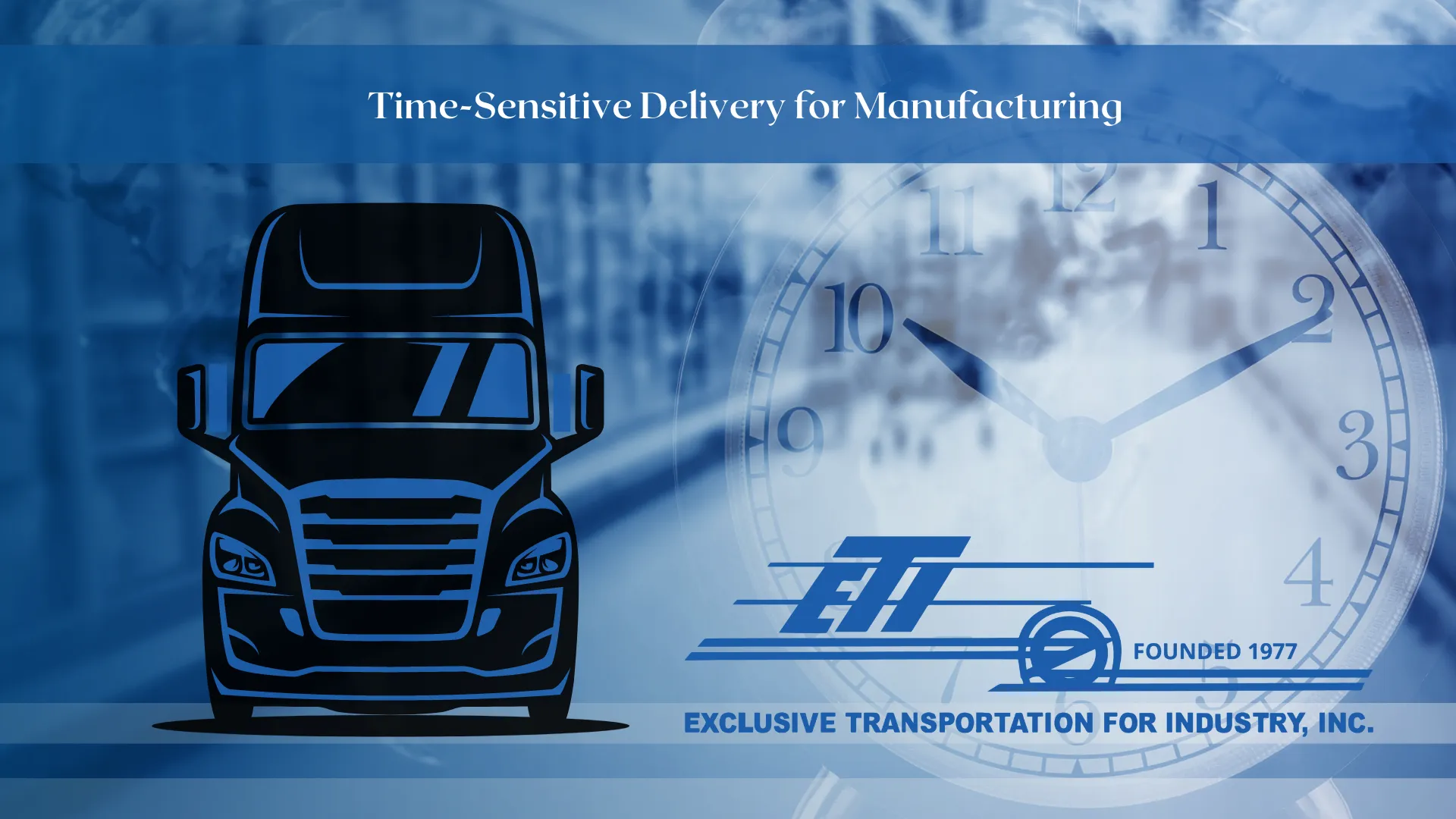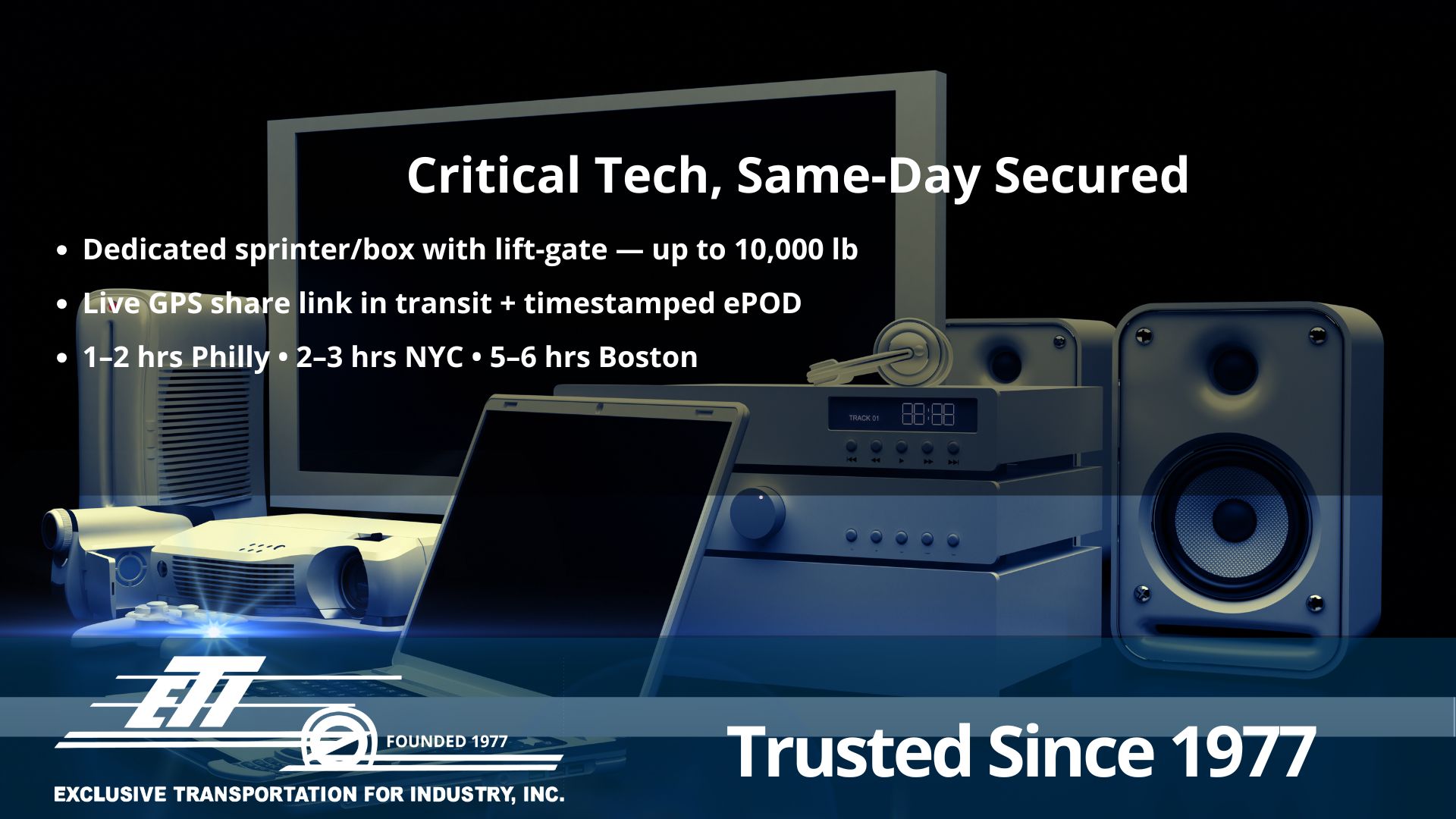The U.S. trucking industry is expected to stabilize heading into 2026 after years of volatility. While growth will be moderate, steady demand in essential sectors like pharmaceuticals, healthcare, and advanced medical supply chains will continue to drive opportunities, especially for hot shot trucking services.
But what does the future look like for hot shot trucking, a niche specializing in urgent, small load deliveries? Let’s examine the projections, the role of vaccine and temperature-controlled shipments, and how the numbers come together for operators like ETI Trucking.
The U.S. Trucking Industry: Outlook for 2026
To forecast hot shot trucking trends, it’s important to first examine the broader trucking landscape. The U.S. freight trucking market is projected to reach $533 billion by 2025, continuing into 2026 with moderate growth as fleet orders align with replacement needs rather than major expansions.
Growth is driven by consumer demand, ecommerce, and sectors such as healthcare and manufacturing that rely heavily on efficient ground transportation.
How Are Hot Shot Trucking Market Estimates Calculated?
Hot shot trucking involves Class 3–5 trucks (heavy duty pickups with flatbed trailers) hauling time sensitive loads that don’t require a full tractor trailer. Because of its size and niche specialization, hot shot trucking represents only a fraction of the total freight market.
Assumed market share: 1–3% of total trucking revenue. Using a 2% baseline assumption:
2% of $550 billion (2026 trucking projection) = \$11 billion hot shot trucking market. At 1% share, the market would be around \$5.5 billion, while at 3%, it could approach \$16.5 billion. These estimates align with hot shot’s unique operational role, smaller vehicle sizes, and focus on specialized loads, much like how ETI Trucking leverages its hot shot fleet for urgent shipments across the North Atlantic Region.
Healthcare and Pharmaceutical Logistics: A Key Growth Driver
One of the largest opportunities for hot shot trucking in 2026 lies within healthcare and pharmaceuticals. These sectors increasingly require flexible, on demand deliveries for critical shipments such as medical equipment, biologics, and lifesaving therapies.
Why is hot shot trucking so well suited for pharmaceutical logistics?
- Time Critical Deliveries: Hospitals, pharmacies, and clinics often need supplies urgently. Hot shot trucking offers direct delivery without intermediate stops.
- Small Load Specialization: Pharmaceuticals tend to be high value but compact, making hot shot trucks more efficient and cost effective than using full tractor trailer.
- Compliance Capabilities: Companies investing in temperature control and regulatory adherence can win premium contracts in this sector. ETI Trucking specializes in pharmaceutical grade temperature-controlled shipments, providing compliance reporting and dedicated service for these sensitive loads.
Vaccine Transport: Fast, Secure, and Compliant
Vaccine transport has become a critical part of medical logistics, particularly with continued booster campaigns, new immunization programs, and emerging therapies requiring strict temperature controls.
Hot shot trucking has proven to be an ideal solution for vaccine transport, particularly for sensitive MRNA-based formulations. These vaccines have strict temperature requirements and limited shelf-life once they leave ultracold storage, making time-sensitive delivery critical to maintaining their efficacy. Hot shot services excel here by providing direct, non-stop transport without the delays caused by transfers or consolidation points. Additionally, vaccine shipments are typically compact yet extremely high in value, meaning they don’t require a full truckload but do demand dedicated handling—something hot shot trucks are perfectly suited for. By routing shipments directly from origin to destination with minimal handling along the way, hot shot trucking significantly reduces the risk of spoilage or temperature excursions, protecting the integrity of the vaccines. This reliability is essential not just for pharmaceutical distributors but also for the healthcare providers and public health programs that depend on these life-saving treatments to arrive safely and remain effective for patient use.
ETI frequently handles vaccine and pharmaceutical shipments, employing temperature controlled hot shot trucks equipped with advanced monitoring to meet CDC and FDA guidelines.
Temperature Controlled Hot Shot Trucking: The Next Frontier
Temperature controlled hot shot trucking is a specialized transportation solution that merges the rapid, direct delivery capabilities of hot shot trucking with stringent temperature management. Unlike standard freight services that consolidate loads and follow preset schedules, hot shot trucking uses medium-duty trucks and trailers to transport smaller, time-critical shipments directly to their destination without delays. When temperature control is required, these trucks are outfitted with advanced refrigerated or climate-controlled units that can maintain precise temperature ranges—for example, keeping a shipment consistently between 2°C and 8°C for refrigerated pharmaceuticals, or even maintaining temperatures as low as -70°C for certain MRNA-based vaccines. This combination of speed and temperature assurance ensures that sensitive products like specialty biologics, gene therapies, or ultracold vaccines arrive intact and compliant with regulatory requirements, without the risk of temperature excursions that could compromise their effectiveness. The FDA and CDC mandate specific storage and transport conditions, which require not just equipment but also trained drivers and documented compliance.
Companies like ETI Trucking that provide temperature controlled hot shot services are positioned to command higher growth, due to their equipment and training of staff on the critical nature and strict standards of their shipments.
Frequently Asked Questions
- What is hot shot trucking?
Hot shot trucking uses medium duty trucks to haul urgent, smaller loads directly to their destination, ideal for expedited deliveries without using full tractor trailer. ETI offers hot shot services for medical, pharmaceutical, and manufacturing clients needing rapid turnaround.
- How large is the hot shot trucking market projected to be in 2026?
Estimates suggest the hot shot trucking market could reach \$11 billion, assuming it maintains roughly 2% of the projected \$550 billion U.S. trucking market.
- How does vaccine transport benefit from hot shot services?
Hot shot trucks deliver vaccines rapidly and directly to healthcare facilities, reducing spoilage risks associated with longer hub-based routes.
- What are temperature controlled hot shot trucks?
They are hot shot trucks equipped with refrigeration or heating to maintain cargo temperatures for items like vaccines, biologics, and advanced medical supplies.
- Is hot shot trucking expected to grow in 2026?
Yes, steady growth is projected, especially driven by healthcare logistics, ecommerce demand, and manufacturing supply chains.
- What regulations govern pharma hot shot trucking?
FDA, CDC, and DOT guidelines regulate temperature control, packaging, and secure handling of pharmaceutical and medical goods. ETI Trucking stays compliant through rigorous training and operational standards.
- Do hot shot drivers need special licenses for vaccine transport?
Many hot shot loads don’t require a CDL license, but transporting controlled substances or hazardous materials may require additional endorsements. ETI Trucking ensures drivers meet all regulatory requirements before assignment.
- What is the biggest challenge for hot shot trucking in 2026?
Maintaining profitability amid fluctuating fuel prices, insurance costs, and staying compliant with evolving healthcare logistics regulations.
Final Thoughts
The 2026 hot shot trucking forecast indicates a stable and potentially lucrative future, especially for operators specializing in pharmaceutical logistics, vaccine transport, and temperature-controlled shipments. By investing in compliance, technology, and direct delivery capabilities, companies like ETI are well positioned to meet the urgent needs of the healthcare and advanced medical supply industries.









